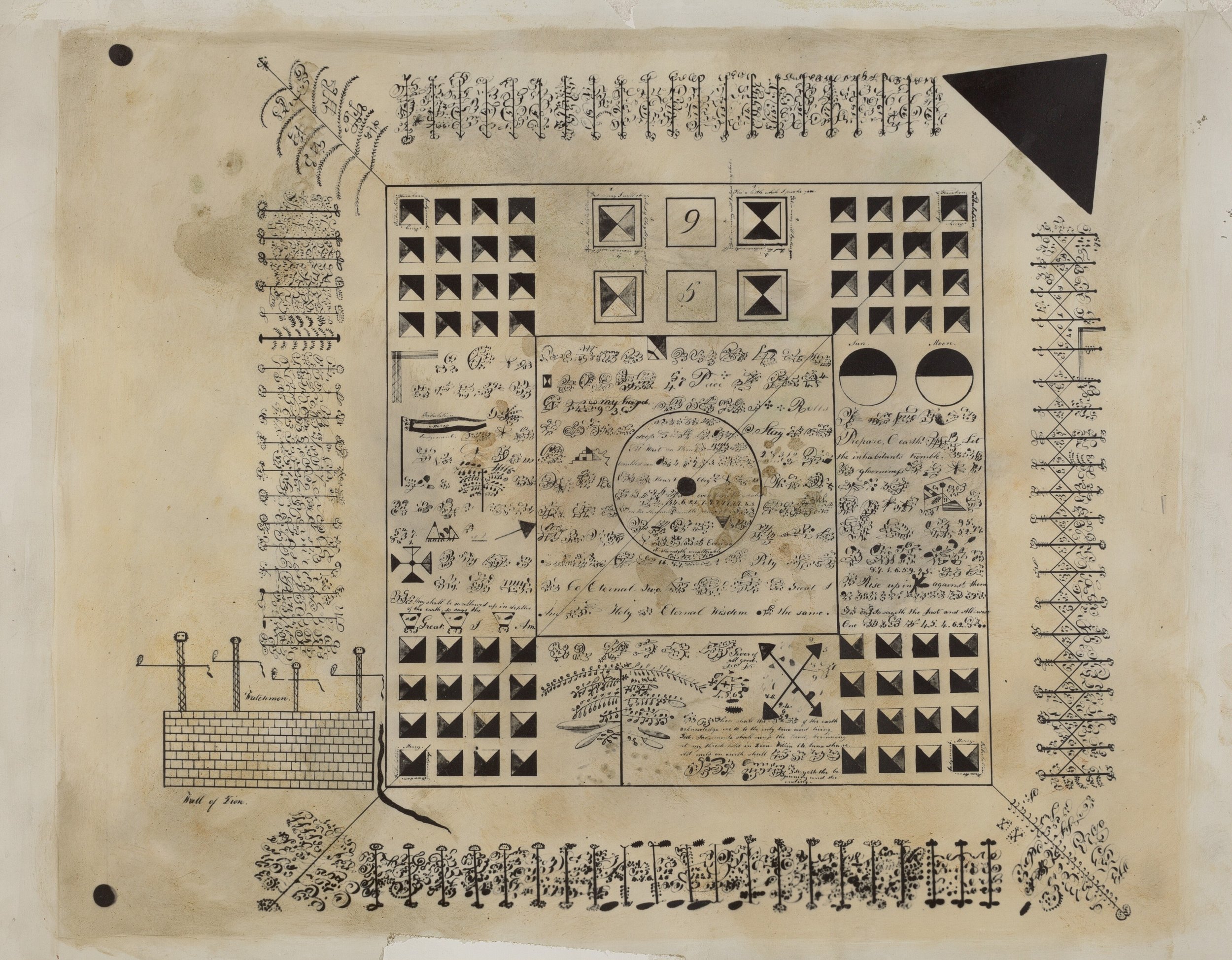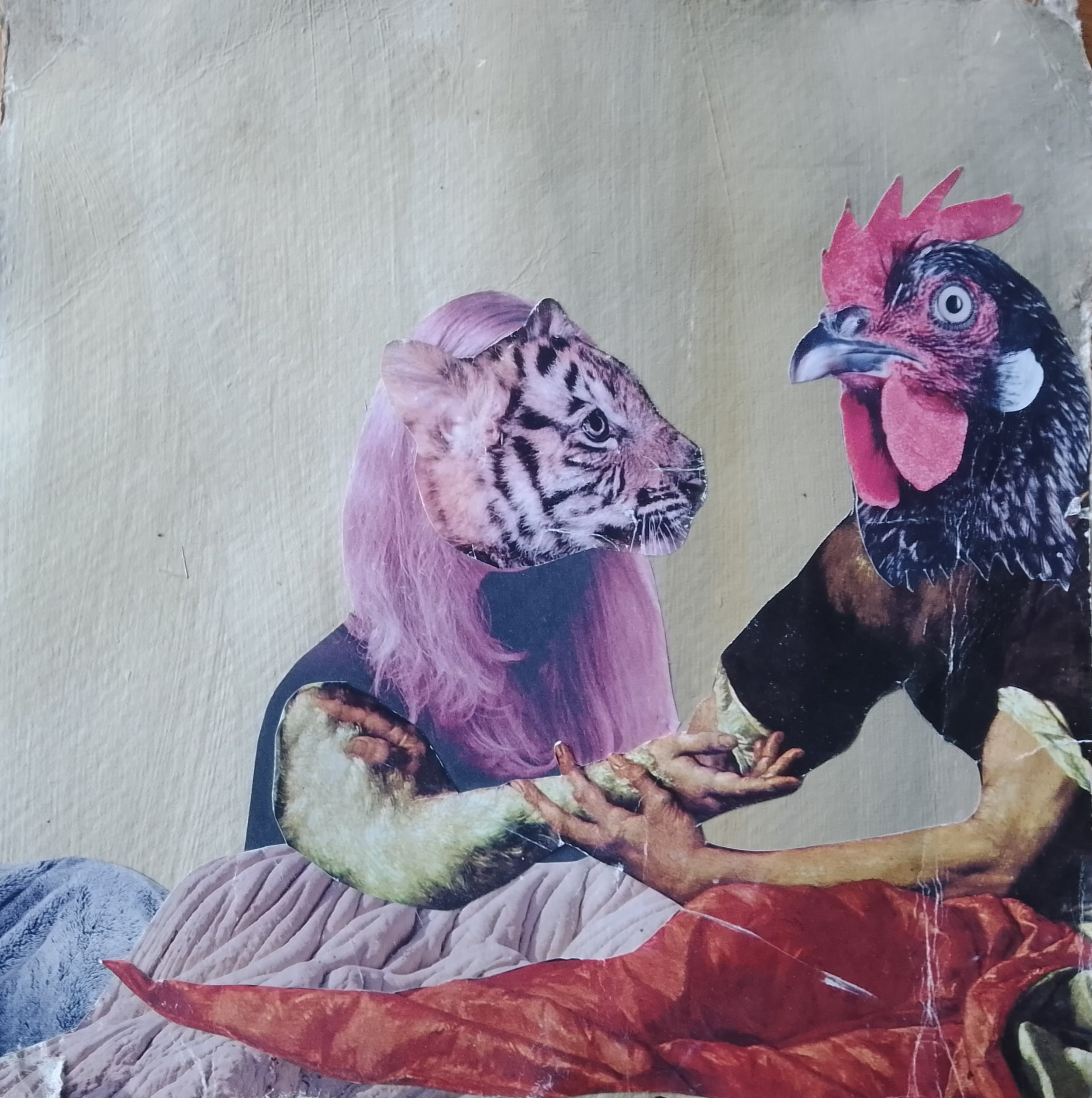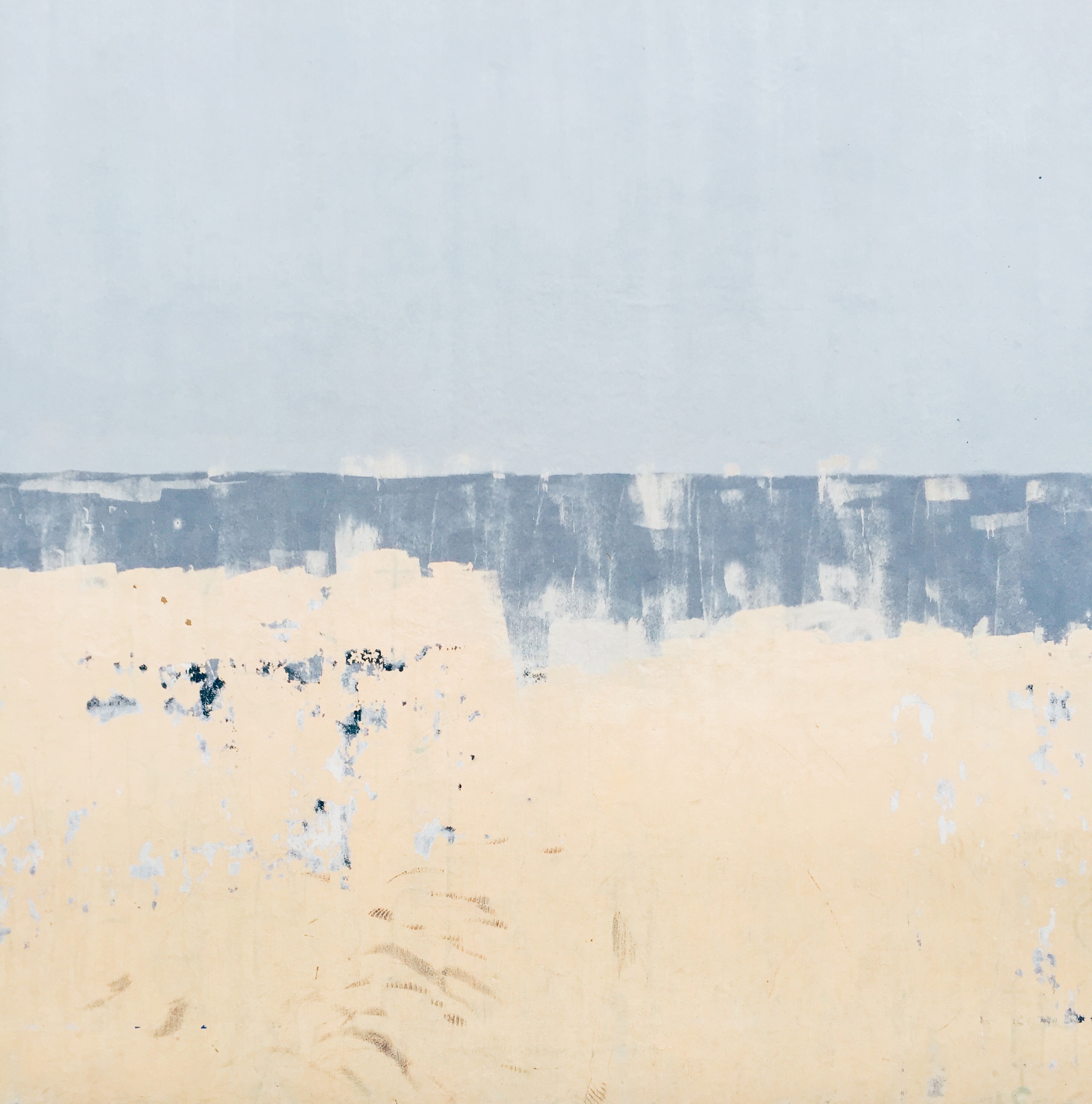
After Effects by Susanne Dyckman
…I took the first line, or part of it, from the opening poem and inserted it in italics at the bottom of the last poem. I repeated this process throughout the manuscript. I did some light edits on the italicized parts and broke my own rule by putting the italicized words at the top of the very last poem, rather than the bottom. This weaving process seemed right to me, as there really is no end to the type of discussion the poems were having.

oracles by Edward Smallfield
If anything, in erasure, I want to set the language free, both from Cage’s intentions and from my intentions. My hope is that all the language has been thrown up in the air and has landed wherever it has landed, so that both Cage and I have been erased from the picture, and that the interaction will be between the reader and the language. In trying to set the language free, I would also like to set the reader free.

Amiss by Harriet Sandilands
By prohibiting the use of that expansive, generous, omnipotent E, I found myself drawn to words less familiar to me, honing in on stranger symbols and the significance of things that had hitherto lurked in the shadows, eluding me. Sometimes, I would write intuitively and then go back, weeding out Es as though sieving lumps out of a white sauce. Sometimes I would collect E-less words like a builder assembling the necessary materials for construction.

Review: Alchemy and Magic in Tiff Dressen’s Of Mineral by Edward Smallfield
Of Mineral is pure poetry, written in the alchemical language of a poetry that can’t be translated directly into prose.

Poems for Frank O’Hara’s birthday by rob mclennan
I was raised on a farm, so the ways in which everyone would help each other when needed was a model I hadn’t even realized I absorbed: you do the things you can for others, and what you aren’t able to do, someone else might take on. The best thing we can do for all involved (including ourselves) is to hold each other up.

Artist at Work: An Interview with Larry Delinger
Making collages and composing music go hand in hand. The disciplines talk to each other. I was a composer before I became a collage artist. Robert Rauschenberg and Joseph Cornell were two artists who initially caught my eye. Years ago I attended a retrospective exhibition of Rauschenberg’s work where I saw these shirt boards (small cardboard rectangles) that were collaged in various ingenious ways. What struck me was how they spoke to me. They taught me how to work. Find the magic in the mundane. It works for music as well.

night void messages by Edward Smallfield
The rules were simple. I couldn’t invent any dreams—I could only write dreams that I remembered. And I couldn’t add anything. I couldn’t smooth over the disjunctive logic of the dream, or create any narrative except what I remembered, and usually what I remembered did not make much of a coherent narrative.

A Woman Reflected by Barbara Tomash
As a child uncomfortable in my own skin, in my own family, I read and read— reading was an alternative skin, an alternative body I could become whole inside of. I found intimacy and truth in the reader and writer exchange, so, for me the writer has a deeply human, even primal role. I think one of the ways erasure appeals to me is that it allows me to plumb the mystery and potency of the reader and writer connection in an unabashed and imaginatively assertive way.

Three Efforts at Arrival and a Series of Departures by Elizabeth Robinson
I like that all of these processes—working as a church, getting a person housing or medical care, making a poem—entail looking at the limited resources you have and putting them together in a resourceful and imaginative way. I like that there is wonder involved that softens our need for resolution or control.

Memory Yard by Stephen Hemenway
I studied painting as an undergraduate, although I haven’t painted in decades, it does affect how I approach writing—I still think about advice I got from my painting instructors even. For example, in a painting when you paint over something it’s impossible to go back, or you have to recreate what you did before, but at the same time you can’t treat a painting as something precious when you’re working on it, or you’d be totally stuck in place. Although I do save earlier versions of poems, I don’t often reread them when editing or ever really. I just look at where I’m at and move forward.

Joan Brossa made me /a translation by Edward Smallfield
It was a little bit counter-intuitive to me that I got so excited about translating these poems. But there’s also a certain kind of surrealism in these poems. Much less the surrealism, interestingly enough, of Joan Miró, and more the surrealism of René Magritte. And I think that did draw me to these poems. But for me, it’s always mysterious, it’s never rational, it’s never conscious, I just kind of start.